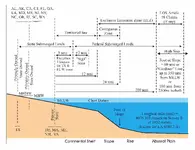ncclaymaker
Sr. Member
- Joined
- Aug 26, 2011
- Messages
- 370
- Reaction score
- 316
- Golden Thread
- 0
- Detector(s) used
- Minelab 1000, A Motorized Power Glider Trike, 17 foot travel trailer behind my Jeep. 4" suction dredge/high banker.
- Primary Interest:
- Prospecting
Not having devoted any time to California and its' crazy out of control laws, I have a simple two part question.
1. Can one legally use a suction dredge at or below the low tide mark.
2. Can you dredge above the the low tide mark... in other words, anywhere on the beach.
Filling all holes, so as not to create negative reactions to your dredging activities. After all, use, but don't abuse public property.
1. Can one legally use a suction dredge at or below the low tide mark.
2. Can you dredge above the the low tide mark... in other words, anywhere on the beach.
Filling all holes, so as not to create negative reactions to your dredging activities. After all, use, but don't abuse public property.
Upvote
0







